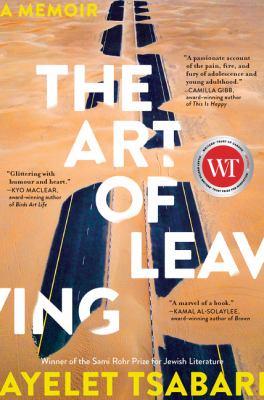
The art of leaving : a memoir
Ayelet Tsabari was 21 years old the first time she left Tel Aviv with no plans to return. Restless after two turbulent mandatory years in the Israel Defense Forces, Tsabari longed to get away. It was not the never-ending conflict that drove her, but the grief that had shaken the foundations of her home. The loss of Tsabari's beloved father in years past had left her alienated and exiled within her own large Yemeni family and at odds with her Mizrahi identity. By leaving, she would be free to reinvent herself and to rewrite her own story. For nearly a decade, Tsabari travelled, through India, Europe, the US and Canada, as though her life might go stagnant without perpetual motion. She moved fast and often because--as in the Intifada--it was safer to keep going than to stand still. Soon the act of leaving--jobs, friends and relationships--came to feel most like home.
Available Copies by Location
| Location | |
|---|---|
| Stamford | Available |
Other Formats
Browse Related Items
| Subject |
| Tsabari, Ayelet, 1973- > Travel. Mizrahim > Israel > Biography. Yemenis > Israel > Biography. Identity (Psychology) |
| Genre |
| Biographies. |
- ISBN: 9781443447867
-
Physical Description
print
325 pages ; 24 cm - Publisher [Place of publication not identified] : [publisher not identified], 2019.
Content descriptions
| Bibliography, etc. Note: | Includes bibliographical references. |
Additional Information



